Contents

Water retention in the body is one of the variants of water metabolism disorders, which doctors characterize as hyperhydration. In the layman’s environment, this condition is called fluid retention or edema (swelling).
The mechanism of water retention can be observed in the system, blood circulation, abdominal organs and soft tissues. Visually, this manifests itself in the form of swelling of the arms and legs, the appearance of excess weight.
Why is water retained in the body? There are many reasons for this – some of them do not pose a health hazard, others are very serious. Physiological water retention can be observed in women before the start of the cycle or during childbearing.
Signs of fluid retention are observed in physically inactive people, bedridden patients, as well as in passengers overcoming long flights in a sitting position. Water retention is manifested by weakness, dizziness, sleep disturbance.
Among the factors provoking water retention in the body, a special place is occupied by serious diseases, such as heart failure, kidney pathology, neoplasms of various origins, and endocrine system disorders. If a person develops symptoms of fluid retention, you should see a doctor as soon as possible in order to find out the causes and provide medical assistance.
6 tips to remove excess fluid from the body
If the edema is not pronounced or is caused by physiological processes, you can remove excess fluid from the body at home using simple methods.
1 Limit your salt intake
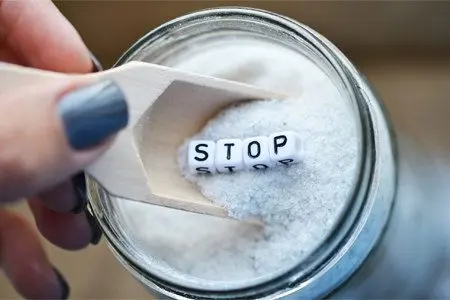
Common salt in the kitchen is sodium chloride. The body needs sodium to bind to water and maintain fluid balance at the tissue and cellular level.
Sodium chloride enters the body with food. If foods high in salt are present in the daily diet, this can cause water retention. Processed foods have the highest concentration of salt.
The easiest way to reduce water retention is to reduce your daily intake of salt, i.e. sodium. With regard to this approach, not all opinions of scientists are unambiguous.
The results of several experiments have confirmed that an increase in the amount of sodium in food leads to a more pronounced retention of water in body tissues. [1], [2], [3], [4].
However, data from another study in healthy men suggests no such effect. Scientists explained such disagreements by the individual characteristics of each organism. [5].
2 Increase your magnesium intake
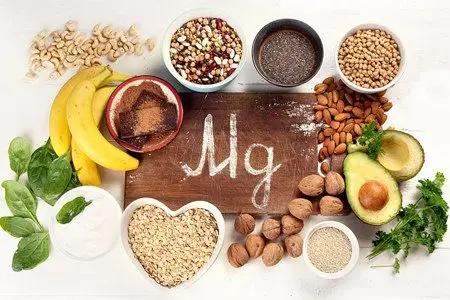
Magnesium is one of the most important minerals, the deficiency of which leads to serious consequences. Magnesium is a component without which about 300 enzymatic processes cannot be carried out. In addition, magnesium in combination with calcium provides contraction and relaxation of skeletal muscles. The mineral is necessary for the synthesis of protein – the main building component of new cells. As scientists have found, increasing the oral intake of magnesium helps to reduce the amount of water retained in the body.
Observation of women showed that taking 200 mg of magnesium per day reduces water retention in the premenstrual period [6].
Other independent magnesium studies in women have shown similar results. [7].
The best natural sources of magnesium are nuts, dark chocolate, green leafy vegetables, and whole grains. For convenience, you can use high-dose active magnesium supplements available at drugstores or online.
3 Increase your intake of vitamin B6
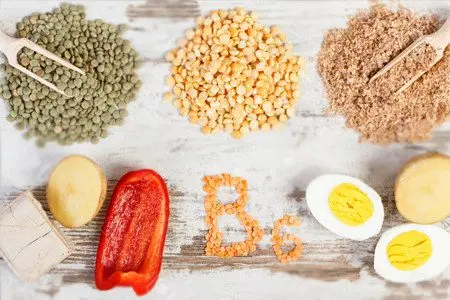
Vitamin B6 is one of a large family of water-soluble vitamins that play a huge role in cell life. Without vitamin B6, the formation of healthy red blood cells and the performance of vital functions of internal organs are impossible.
Studies have shown that during premenstrual syndrome, vitamin B6 prevents fluid retention in the body of women. [8].
The best sources of vitamin B6 are bananas, walnuts, potatoes, meat. In pharmacies or trusted online stores, you can buy supplements that contain vitamin B6 in high dosages.
4 Add potassium rich foods to your diet
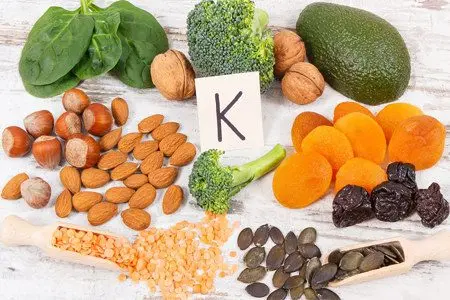
Potassium is extremely important for the body. It is necessary for the transmission of nerve impulses that ensure the full functioning of all parts of the body. Potassium is one of the main minerals that support heart health. Due to the regulation of water balance, potassium has a hypotensive effect.
Potassium regulates the excretion of excess water in two ways. It is a natural sodium antagonist and increases the amount of urine produced. Potassium deficiency causes impaired renal function up to the development of renal failure. [9].
The highest level of potassium is recorded in avocados, tomatoes, bananas, spinach, and beans.
5 Add dandelion to your diet
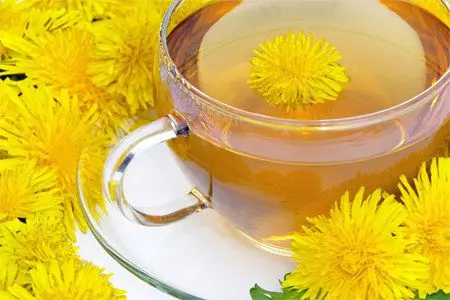
Dandelion officinalis (lat. Taraxacum officinale) is often used as a natural diuretic. The active substances of the herbal diuretic reduce the amount of retained water due to the frequent urge to urinate.
Scientists organized an experiment involving 17 subjects. All participants were offered three doses of dandelion leaf extract over the course of one day. The participants were then followed up for several days. The amount of fluid consumed and excreted was recorded. The analysis showed a significant increase in urine output [10].
Although there was no control group in the study, the findings confirmed that dandelion extract can be used as an effective diuretic. In addition to reducing water retention, dandelion has a complex positive effect on the body. Dandelion extract can be found online.
6 Eliminate refined carbohydrates from your diet
Eating foods containing refined carbohydrates causes rapid spikes in blood glucose and insulin levels. An increase in insulin triggers the mechanism of sodium retention in the tissues. It does this by increasing sodium reabsorption in the kidneys. The result of these processes is an increase in the amount of fluid in the soft tissue structures of the body. [11], [12].
Refined carbohydrates are found in large quantities in processed table sugar and white flour.
7 foods to help get rid of excess fluid
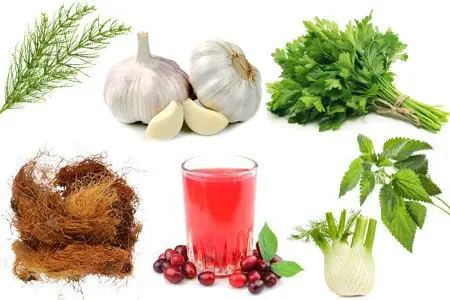
Mechanisms to reduce water retention are currently being studied. The data of numerous studies made it possible to determine a number of methods for removing excess water from body tissues:
Garlic – we usually think of garlic as an antiviral agent, but it has been proven to have a diuretic effect [13], [14].
Parsley: This herb has a reputation as a diuretic in folk medicine. [15].
Horsetail: One study found horsetail to be a diuretic [16].
Fennel: This plant may also have a diuretic effect. [16].
Nettle: This is another plant used to reduce water retention. [17]
Drink a decoction of corn stigmas, a traditional diuretic popular in different countries. [18].
Try cranberry juice – it is believed that the product can reduce water retention. The anti-edematous effect is accompanied by a pronounced anti-inflammatory, mild laxative effect.
These funds contribute to the removal of excess fluid, but we must not forget that herbal ingredients can provoke unwanted side effects. Before you start taking herbal remedies, you should consult your doctor about the optimal dosage and possible contraindications.
[Video] Cardiovascular surgeon, phlebologist Abasov M. M. – How to get rid of leg swelling in a week:









